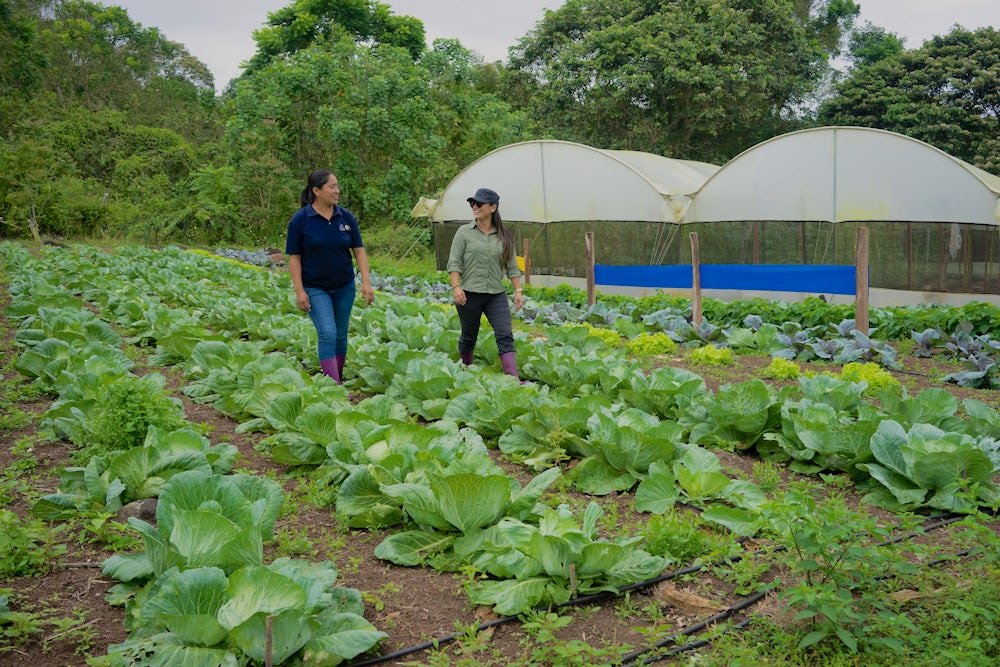
The biodiverse archipelago of Ecuador’s Galápagos Islands is currently home to approximately 33,000 people, 7,000 of whom live on the easternmost island, San Cristóbal. It is estimated that around 1,450 tons of agricultural produce are required monthly to meet the demand of the island’s population. Of this amount, more than 55% arrives by boat or plane from mainland Ecuador, with the remainder produced locally.
Seeking food sovereignty for the Galápagos Islands — the ability for local communities to address issues of hunger and malnutrition by cultivating their own healthy, fresh foods — is a difficult but possible task, according to 250 farmers and agri-entrepreneurs who are actively building a more sustainable food system through Heifer Ecuador’s Future of Food program.
As part of the program, Heifer Ecuador established two rural business schools and one agroecology school, which have trained 92 farmers on best practices to both scale their agricultural businesses and farm in a manner that protects, instead of harms, the ecosystem.
Under this initiative, 70 families have transitioned their farms from traditional agriculture to agroecological production systems — including reducing the use of pesticides and chemical fertilizers — and learned the importance of planting native and endemic plants within their agricultural production systems.
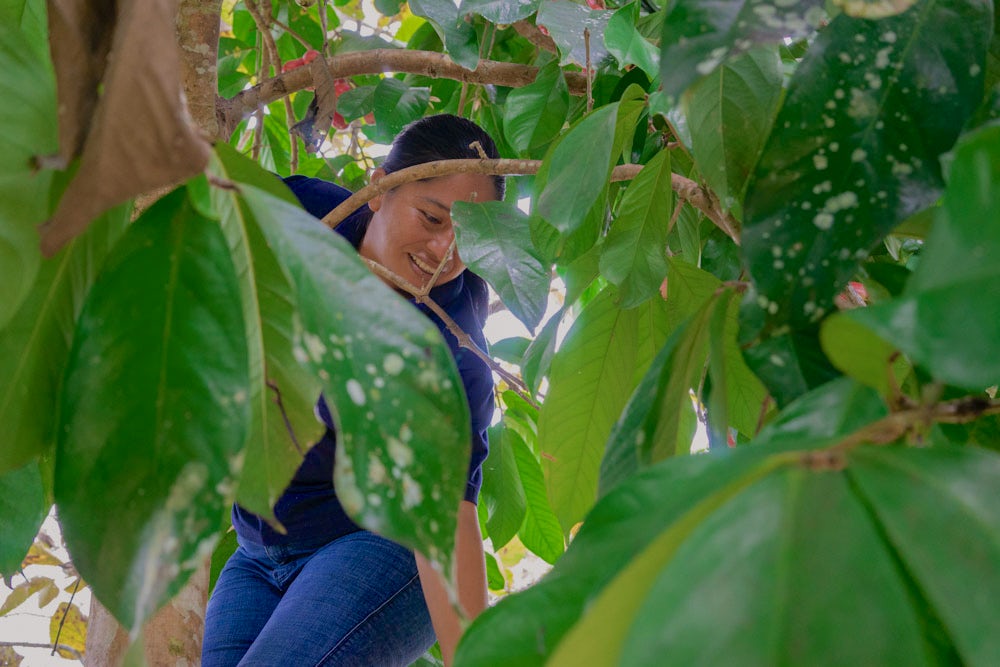
Farmers have planted 25,000 native and endemic plants in rural areas of San Cristóbal so far in 2023, recovering 10 hectares of land previously overrun by invasive species.
Rural women farmers have been central to this success, bolstered by support to take leadership of ecosystem conservation, earn their own income, supply food for their families and communities, and advocate for progress that extends well beyond the land.
In Ecuador, according to official data, 57 percent of women have been victims of psychological violence, 35 percent have experienced physical violence, 33 percent have experienced sexual violence and 16 percent have experienced financial harassment — receiving less pay than their male counterparts for the same work or lacking decision-making power on how the money they earn is spent.
This year, in collaboration with the Ministry of Human Rights and Women and the United Nations Development Program (UNDP) in Ecuador, Heifer Ecuador technicians worked with program participants in the Galápagos to challenge these damaging gender norms in favor of an equitable, food secure future.
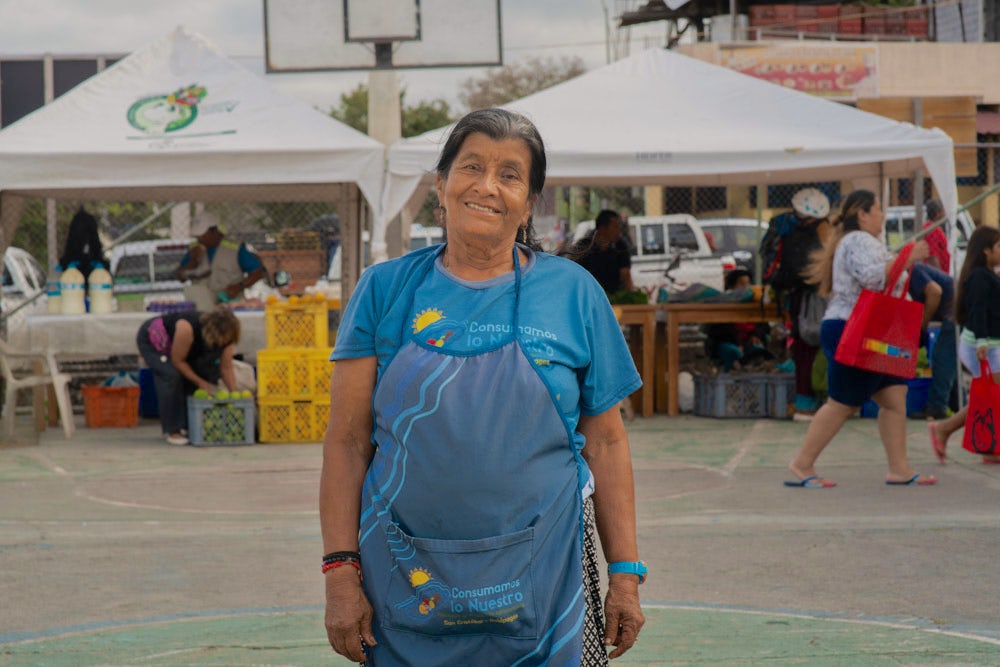
Titled “Empowering Rural Women,” seven workshops ran from March through October 2023, providing a space for women and men to reflect together on the division of household chores, among other gender-related issues.
In total, 41 women and 25 men came together in these workshops with the goal of building a shared understanding of the gender-specific challenges women face, and ways to address them together. Laura Guamanquishpe, a farmer and mother of three children, attended one such workshop and identified with points raised by the facilitator.
"Since childhood, I saw that my mother cared for us and the housework while my father and only brother went to work," she said. Laura reflected that she has never felt mistreated in her 11 years of marriage. Still, the workshop made her realize that, besides the work she does at home — cooking, washing clothes, bathing and feeding her children, checking their homework — she also works in the vegetable garden. Her partner, on the other hand, works solely on the farm.
For Laura, the activity spurred a change within her home. After the workshop, and without her saying anything, her husband began helping her in the kitchen and spending more time with their children.
As part of this important work, Heifer Ecuador, together with UNDP and its Botas Violeta campaign, distributed 70 pairs of purple boots to women farmers and producers of San Cristóbal on Nov. 27, 2023, aligning with the International Day for the Elimination of Violence Against Women observed annually on Nov. 25.
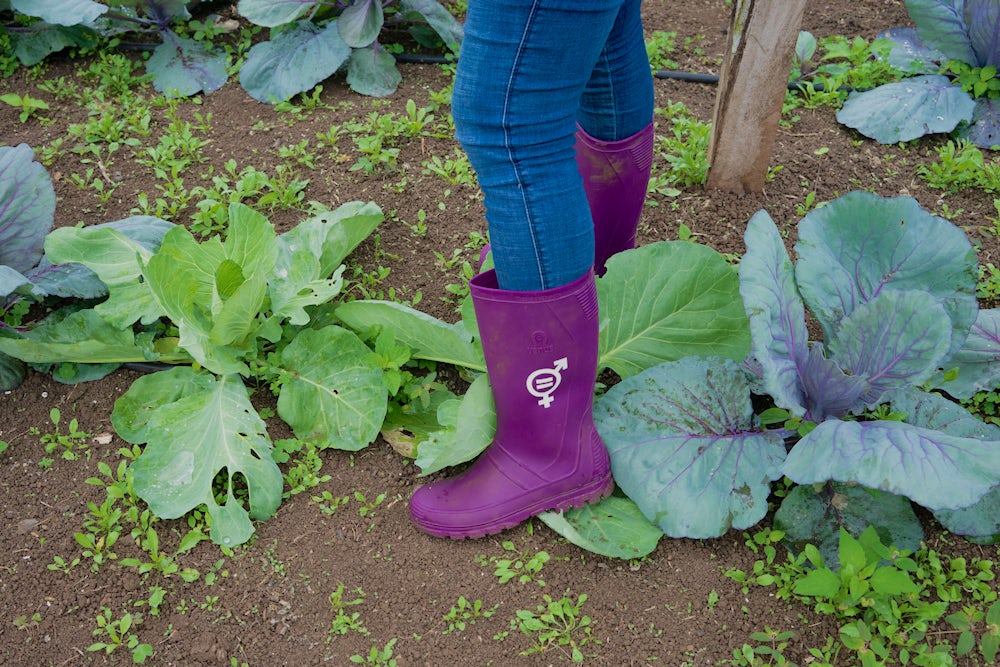
The purple boots are a reference to the color that has long been tied to movements that oppose gender-based violence, and a continuation of Heifer Ecuador’s commitment to facilitate the economic empowerment of rural women through agriculture-based livelihoods.
Participating women will be encouraged to unite under the slogan “put on your purple boots.”
“Our goal is to raise awareness for the specific challenges rural women face on account of their gender, but more importantly to help them recognize what’s possible when they have agency, decision-making power and a decent income,” said Rosa Rodriguez, country director of Heifer Ecuador. “Through [green] businesses, women of the archipelago are contributing to the conservation of their ecosystem and the food sovereignty of their territory.”
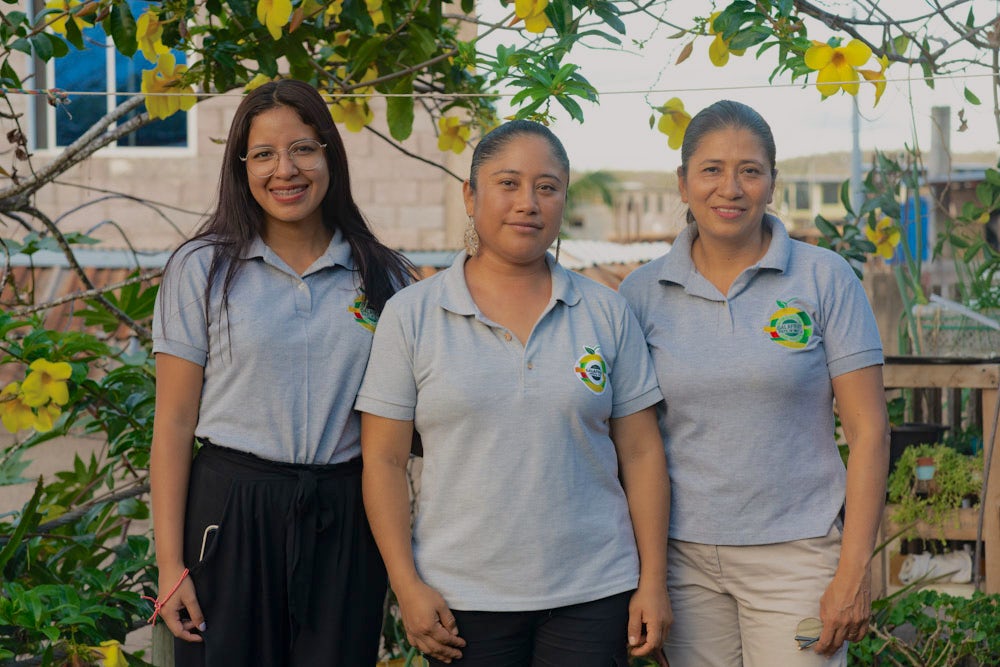
Heifer Ecuador has partnered with smallholder farmers on San Cristóbal island since 2019, supporting them to build sustainable food systems, embrace agroecology, run green businesses and supply nutritious products to local markets. Learn more about the project.